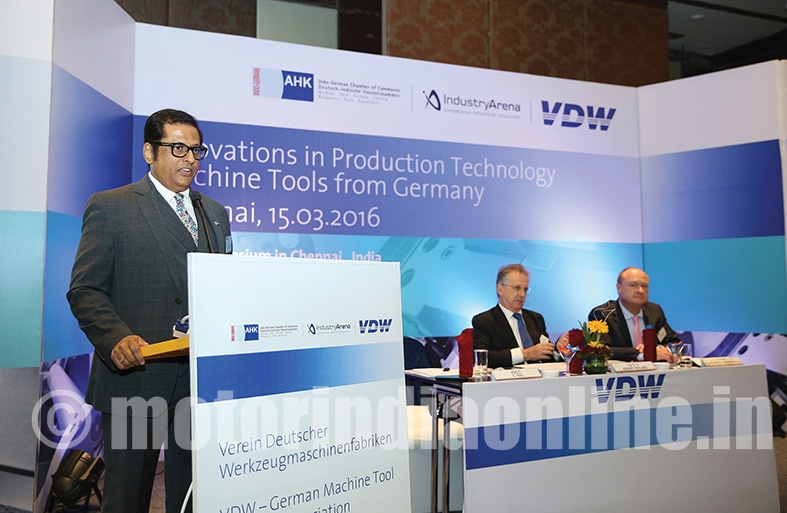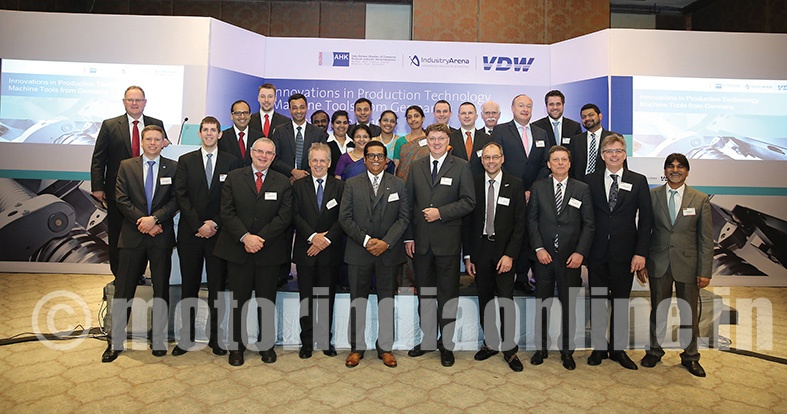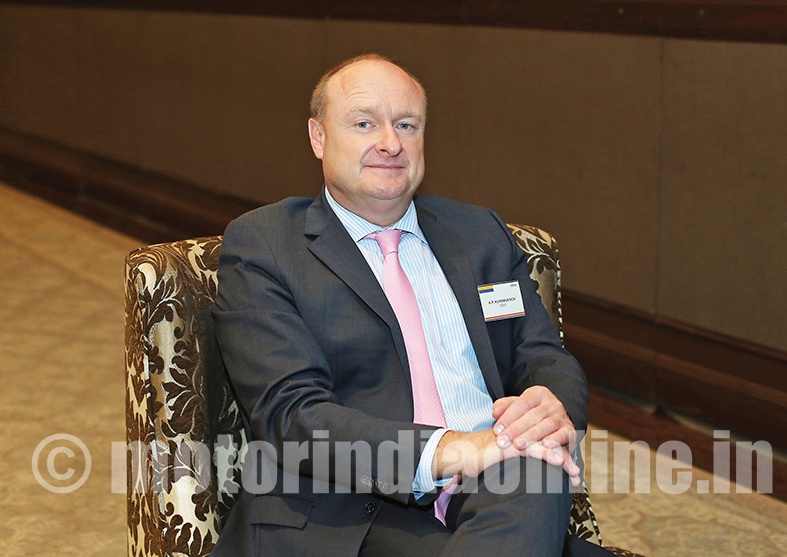Overwhelming response for Chennai and Pune symposia
The German machine tool industry continues to arouse keen interest in India. For the fourth time in succession, VDW, the German Machine Tool Builders’ Association, joined forces with the German-Indian Chamber of Industry and Commerce to organise one-day symposium on March 15 in Chennai and on March 17 in Pune.

A total of 17 front-ranking companies – DMG Mori, Emag, Gehring, Gleason-Pfauter, Heckert, Heller, Hermle, Kapp, Leistritz, MAG, Mauser, Open Mind, Peiseler, Profiroll, Samag, Schwäbische Werkzeugmaschinen and Waldrich Coburg – showcased their products, solutions and services for modern-day industrial production operations. Around 240 customers from the automotive industry and its component suppliers, the general mechanical engineering sector and the aviation industry attended the Chennai symposium and 220 customers were present at the Pune symposium.
“This is already the fourth occasion that VDW has been represented in two cities at a time with its symposia in India. This has proved to be a good idea, because of the country’s size and its regional distribution of industrial activity,” explained Klaus-Peter Kuhnmünch, who at VDW is responsible for technology symposia.
With a market volume of almost 1.8 billion euros, India came eighth in the world rankings for machine tools in 2015. The VDW British forecasting partner, Oxford Economics, expects the Indian economy to pick up speed in the years ahead, with industrial output and capital investment both rising. The machine tool market is predicted to expand by 9-10 per cent in both 2016 und 2017. The growth of the Indian market is directly linked to improvements in the local infrastructures.

“The slogan ‘Make in India’ is aimed at central investments on the spot, and creates ideal conditions for direct investments from abroad. We want to benefit directly from this welcome trend,” emphasised Gerhard Flores, Head of Technological Development and Patents at Gehring Technologies GmbH, Ostfildern, who attended the VDW symposium.
Klaus-Peter Kuhnmünch of VDW confirmed this by saying: “We as the German machine tool industry are confident that India will, in the future too, continue to develop with vigorous dynamism. Chennai and Pune, in particular, are home to the centres of India’s automotive industry and its component suppliers.”
So the association will also be present in the country in the future for the mutual benefit of Indian customers and German machine vendors.
German machine tool makers keen to bag more orders from India
The success of the recent seminar on the machine tool industry organized in Chennai by VDW confirmed once again the German machine tool manufacturers’ high optimism about growth in business from Indian industries, particularly from the automotive sector.

In an exclusive interview to MOTORINDIA, Mr. Klaus-Peter Kuhnmünch, Manager – General Affairs, German Machine Tool Builders’ Association (VDW), said that, in order to build a strong platform among Indian customers, VDW has been regularly organizing the seminar in Chennai since 2005, and the forth one in the series held recently evoked good response as reflected in a lot of business contacts developed. Currently, 40 per cent of the total 300 members of VDW are having their presence in India.
Since 50 per cent of the German machine tools are going for the automotive segment, the VDW members are very optimistic about India’s success story with its accelerated growth in the segment. In 2015, the German machine tool industry achieved 15.1 billion Euro which is a record production in its history. Currently, the German machine tools are exported to advanced economies, including the US and Mexico. At the current rate of consumption, India is expected to become the 12th largest export destination in 2016. In fact, Germany exported 68 per cent of its machine tools production in 2015, maintaining its global leadership in the industry.
The success of the German machine tool industry lies in the top priority accorded for product quality as well as growing investments in R&D, Mr. Kuhnmünch added.